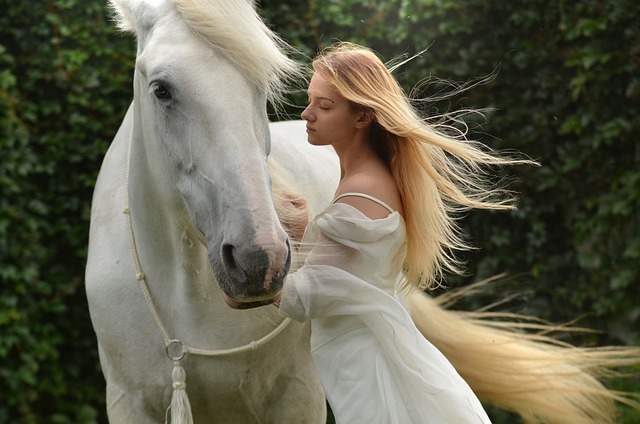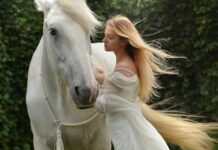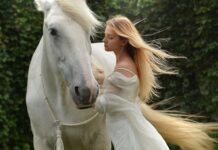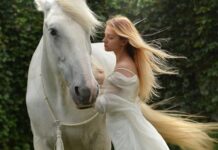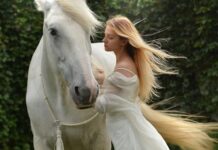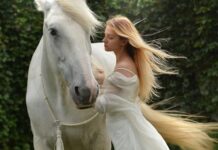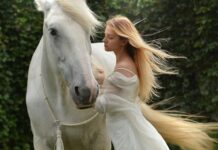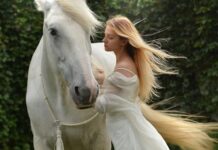Spis Treści
Do Horses Love Their Rider?
When it comes to the bond between horses and their riders, many equestrians wonder if their equine companions truly love them. Horses are known for their loyalty and affectionate behavior, but do these gestures indicate genuine love? In this article, we will delve into the fascinating world of horse-human relationships and explore whether horses are capable of experiencing love for their riders.
The Nature of Horse-Human Relationships
Horses have been domesticated for thousands of years and have played a crucial role in human history. Over time, humans and horses have developed a unique bond based on trust, communication, and mutual understanding. This bond is often strengthened through regular interaction, training, and shared experiences.
While horses are not capable of expressing emotions in the same way humans do, they do exhibit behaviors that can be interpreted as signs of affection and attachment. These behaviors include:
- Seeking physical contact, such as nuzzling or leaning against their rider
- Displaying relaxed body language and a calm demeanor in the presence of their rider
- Responding to their rider’s cues and commands with willingness and cooperation
- Showing signs of distress or anxiety when separated from their rider
The Science Behind Horse Emotions
Understanding the emotional capacity of horses requires a closer look at their brain structure and behavior. While horses may not experience emotions in the same way humans do, they do possess a complex emotional repertoire.
Research has shown that horses have a highly developed limbic system, which is responsible for processing emotions. This suggests that horses are capable of experiencing a range of emotions, including fear, happiness, and even love, albeit in their own unique way.
Furthermore, studies have indicated that horses have the ability to form strong social bonds with both humans and other horses. These bonds are often characterized by trust, companionship, and a sense of security. The presence of oxytocin, a hormone associated with bonding and social attachment, has also been observed in horses during positive interactions with their riders.
Interpreting Horse Behavior
While it is tempting to anthropomorphize horse behavior and interpret it solely through the lens of human emotions, it is important to remember that horses have their own distinct way of expressing themselves. To better understand whether horses love their riders, it is crucial to interpret their behavior within the context of their natural instincts and social dynamics.
Here are some key behaviors to consider when assessing the bond between a horse and its rider:
1. Trust and Cooperation
A horse that trusts its rider is more likely to exhibit cooperative behavior and willingly follow commands. Trust is built over time through consistent training, positive reinforcement, and respectful handling. A horse that respects and trusts its rider is more likely to form a strong bond characterized by mutual understanding and cooperation.
2. Affectionate Gestures
Horses often display affectionate gestures towards their riders, such as nuzzling, licking, or leaning against them. These behaviors can be seen as signs of trust and a desire for physical contact. However, it is important to note that horses may also exhibit these behaviors as a way to seek comfort or establish dominance within their social hierarchy.
3. Emotional Responsiveness
Horses are highly perceptive animals and can pick up on their rider’s emotions. They may respond to their rider’s mood by displaying empathy or mirroring their emotional state. This emotional responsiveness can create a deeper connection between horse and rider, fostering a sense of understanding and companionship.
4. Separation Anxiety
Horses that form strong bonds with their riders may experience separation anxiety when separated from them. They may become restless, vocalize their distress, or exhibit signs of stress and agitation. This behavior suggests a strong emotional attachment and a reliance on their rider for security and comfort.
The Role of Training and Care
While horses may have the capacity to form emotional bonds with their riders, the quality of the relationship is heavily influenced by the training and care they receive. A well-trained and cared-for horse is more likely to develop a positive and trusting relationship with its rider.
Here are some key factors that contribute to a healthy horse-rider relationship:
1. Consistent and Positive Reinforcement
Training methods based on positive reinforcement, such as rewards and praise, help build trust and strengthen the bond between horse and rider. Consistency in training methods and clear communication also play a crucial role in establishing a harmonious relationship.
2. Respectful Handling
Horses thrive in an environment where they are treated with respect and kindness. Gentle handling, proper care, and meeting their physical and emotional needs are essential for fostering a strong bond and a sense of security.
3. Time and Patience
Building a deep connection with a horse takes time and patience. Regular interaction, spending quality time together, and understanding the horse’s individual personality and preferences are key to developing a strong and lasting bond.
Conclusion
While it is difficult to definitively answer whether horses love their riders, the evidence suggests that horses are capable of forming strong emotional bonds with humans. The behaviors they exhibit, such as seeking physical contact, displaying trust and cooperation, and experiencing separation anxiety, indicate a deep connection and attachment.
However, it is important to remember that horses have their own unique way of experiencing and expressing emotions. Interpreting their behavior within the context of their natural instincts and social dynamics is crucial for understanding the depth of the horse-rider relationship.
Ultimately, the bond between a horse and its rider is a complex and multifaceted relationship that is built on trust, communication, and mutual respect. Whether it can be defined as love in the human sense is subjective, but there is no denying the profound connection that can exist between a horse and its rider.

